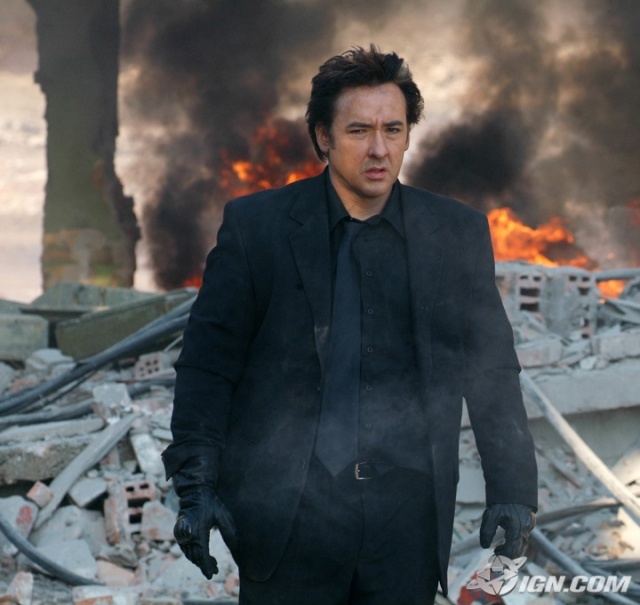This is the 8th bimonthly column I’ve published in Cahiers du Cinéma España; it ran in their September 2008 issue. — J.R.
Ever since I retired from my twenty-year stint as a film reviewer at the Chicago Reader, I’ve been reluctant to see new releases, either as a freelance reviewer or as an ordinary spectator. One reason for this attitude is a reaction to having been obliged for so long to see many hundreds of films I had no personal interest in, many of which I gratefully forgot about shortly after submitting my reviews. Another motivation is that I’m usually so happy seeing or reseeing older films, most often on DVD, that it’s hard to find many new films that are equally enticing.
Undoubtedly my age and physical laziness both play roles in this bias, but I honestly think that the diminishing quality of commercial releases also has a significant influence. I’m not saying that there’s been a decline in cinema more generally — apart from such factors as the eclipse of the Hollywood studios or (for example) the increasing censorship in Iran — because I think it’s arrogant to make such sweeping generalizations on the basis of the tiny fraction of what gets made that one has access to.
Nevertheless, I’d like to suggest that one element in my decreasing interest in new releases is a striking change in the American political climate. In recent years, documentaries have assumed much more importance in American life than they previously had —- a trend that mainly starts with Michael Moore —- simply because the news as it’s reported in newspapers and on television and radio have become pathetically inadequate. This is still true to the extent that TV newscasters here seem abnormally hungry for events that can dominate news coverage to the exclusion of all else, such as Hurricane Katrina or the deaths of Frank Sinatra and Ronald Reagan (or, more recently, a better-than-average cable TV news host named Tim Russert — who died unexpectedly this month and quickly became the major or only focus of cable TV news for almost a week). But it’s become less true now that the U.S. Presidential campaign has finally, if very belatedly, unleashed violent criticisms of George W. Bush which were almost impossible to find in the U.S. media two years ago. This is obviously motivated commercially: the percentage of Americans who, on June 20, currently approved of Bush’s performance as President was said to be 25%.
The new American features I’ve seen most recently have been Indiana Jones and the Kingdom of the Crystal Skull and War, Inc. I went to see both out of political curiosity, and, to my surprise, wound up enjoying the former film much more than the latter. I was wondering, first of all, how tenaciously Steven Spielberg would stick to the imperialist and colonialist nostalgia that was central to the three previous Indiana Jones films, all made in the 1980s. I was pleased to discover that this aspect of the adventure series is now relatively reduced, as signaled by the fact that the story is now set during the 50s rather than the 30s, so that nostalgia for the Cold War has replaced nostalgia for the Depression and, before that, the 19th century.
As for War, Inc., an angry satire about contemporary war profiteering in the Middle East, I was disappointed, both by the quality of the filmmaking (the direction, by Joshua Seftel, is clumsy) and the fact that the obscenity being satirized was already familiar to most of the (very small) audience, thanks to the TV news. This made me realize that American cinema may now be entering its post-Michael-Moore phase, when television has once again become more timely and relevant. Tonight I saw the producer-cowriter-star of War, Inc., John Cusack, on a TV news show, and what he had to say there about Bush, McCain, and Obama was even smarter.


